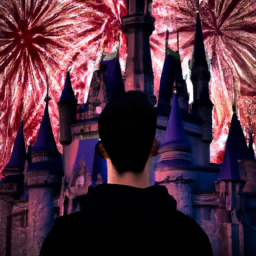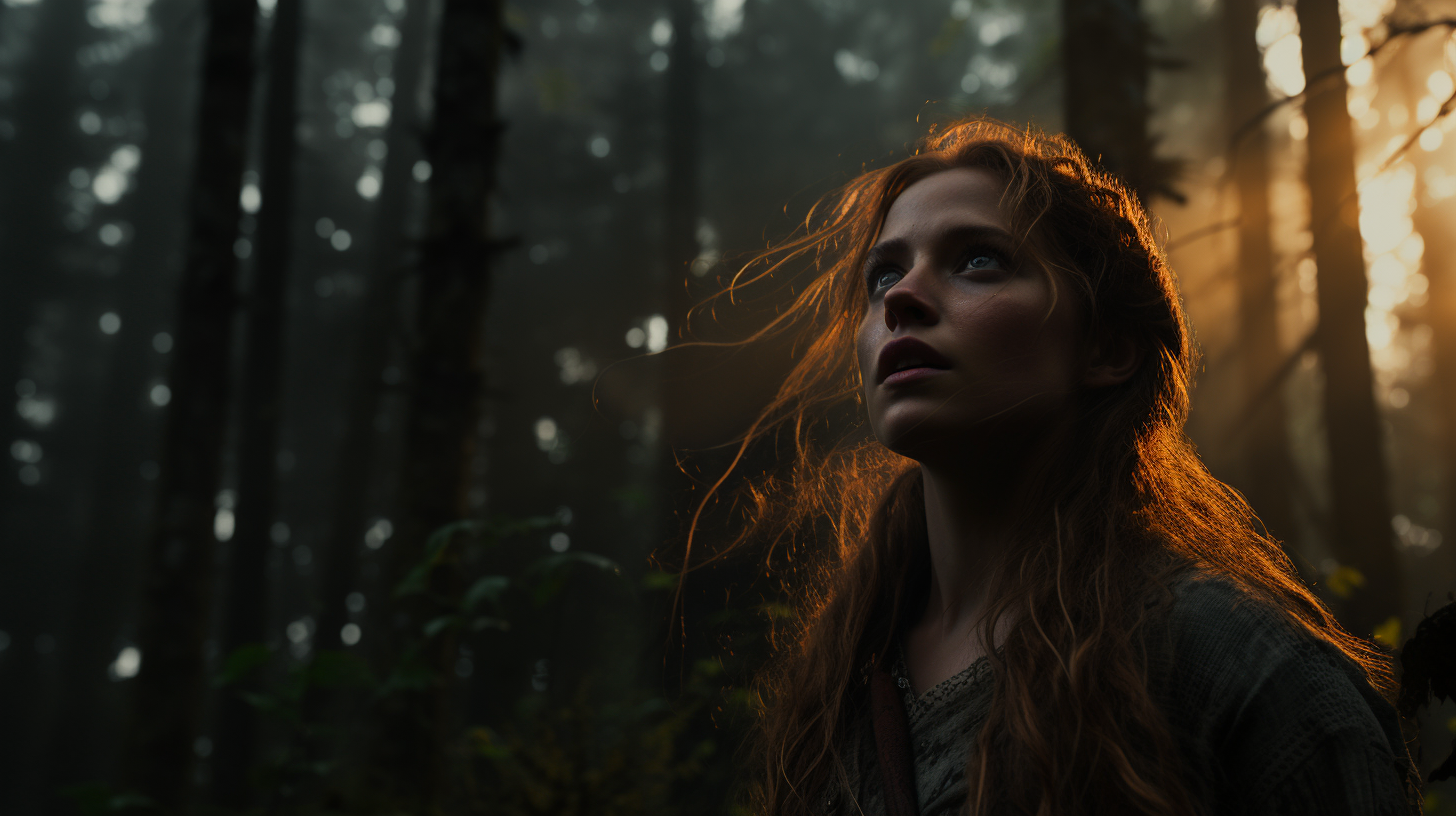As a long-time admirer of the magical world of Disney, I have always been drawn to the famous slogan ‘Where Dreams Come True.’
It’s a phrase that perfectly captures the essence of what Disney is all about – providing a place where people can escape reality and immerse themselves in a world of wonder and enchantment.
But where did this iconic slogan come from? And how has it evolved over time?
In this article, we will explore the history and significance of the ‘Where Dreams Come True’ slogan. We’ll delve into its origins, examine its role in Disney’s marketing strategy, and analyze its impact on fans around the world.
From controversies to parodies and memes, there’s no shortage of fascinating topics to cover when it comes to this beloved phrase.
So join me as we embark on a journey through the magical world of Disney, where dreams really do come true.
Key Takeaways
- The ‘Where Dreams Come True’ slogan originated from a Disney World commercial in 1980, and has become the park’s official slogan and significant to Disney’s marketing strategy.
- Successful brand slogans can influence consumer behavior and purchasing decisions, but marketers must ensure that their slogans align with the company’s values and vision for the future.
- The future of brand messaging will be heavily influenced by the impact of the pandemic, and brands must rethink their approach to advertising and consider how they can connect with consumers in a more authentic way.
- The ‘Where Dreams Come True’ slogan is more than just a tagline; it is an all-encompassing statement that encapsulates what Disney represents and serves as a reminder that there is more to life than just the mundane routine.
The Origin of the Slogan
You might be surprised to learn that the ‘where dreams come true’ slogan actually originated from a Disney World commercial back in 1980. The advertisement showcased families having fun and creating memories at the park, while the narrator stated, ‘Disney World is really a dream come true for everyone who loves magic, adventure, and fun.’
This phrase resonated with visitors so much that it eventually became the park’s official slogan. The history of this iconic slogan shows just how significant it has been to Disney’s marketing strategy. Not only does it capture the essence of what makes the park special – helping people achieve their dreams – but it also appeals to visitors who are seeking an escape from reality.
By using this simple yet powerful phrase in their branding efforts, Disney has been able to create an emotional connection with customers that goes beyond selling tickets or merchandise. It’s no wonder why ‘where dreams come true’ has become synonymous with the magical world of Disney.
The Role of the Slogan in Disney’s Marketing Strategy
Hey there, did you know that using a catchy slogan has been an essential aspect of Disney’s marketing strategy for years? The ‘Where Dreams Come True’ slogan has played a significant role in promoting the emotional appeal of visiting any of their theme parks.
Here are some ways that the success of this slogan has impacted Disney’s marketing:
-
It reinforces the brand message: When people hear ‘Where Dreams Come True,’ they instantly associate it with Disneyland or Disney World. This consistent use of the slogan across all media channels helps to reinforce the brand message and creates a lasting impression on potential customers.
-
It creates an emotional connection: The phrase ‘dreams come true’ taps into our deepest desires and emotions. By using this language, Disney is able to create an instant emotional connection with its audience.
-
It sets expectations: Using a tagline like ‘Where Dreams Come True’ sets high expectations for what visitors can expect from their experience at a Disney park. This expectation then drives people to visit and see if their dream really can come true.
-
It emphasizes customer service: At its core, the ‘Where Dreams Come True’ slogan speaks to Disney’s commitment to providing exceptional customer service. By creating an environment where dreams can become reality, they are promising to go above and beyond for every guest.
The power of a good slogan should not be underestimated. In fact, it can be one of the most effective tools in your marketing arsenal. So let’s take a closer look at how exactly this iconic tagline has influenced visitors’ experiences over time.
The Power of the Slogan
Imagine being transported to a world where every moment feels like magic, and the words you hear evoke feelings of wonder and excitement. This is the power of a slogan, especially one like "where dreams come true"that has become synonymous with Disney.
The emotional power of slogans lies in their ability to convey complex ideas and emotions in just a few words. They create an instant connection between the company and its customers, allowing them to tap into something deeper than just selling products or services.
Slogans also have cultural significance, becoming part of our shared language and collective memory. They can capture the spirit of an era or community, shaping our perceptions and values over time.
For example, "I’m lovin’ it"has become more than just a McDonald’s slogan; it’s now a catchphrase used by people around the world to express enthusiasm for anything from food to music. As such, slogans have immense power beyond their immediate marketing purposes – they can shape how we see ourselves and others in society.
With this understanding of the emotional power and cultural significance of slogans in mind, let’s explore how Disney’s iconic slogan has evolved over time.
The Evolution of the Slogan
Get ready to explore how Disney’s iconic phrase ‘where dreams come true’ has transformed over time and its impact on popular culture.
The slogan has undergone many evolutionary changes since it was first introduced in the 1950s, reflecting Disney’s cultural adaptation to changing times. Originally, it was ‘Disneyland: The Happiest Place on Earth.’
In the early 90s, it evolved into ‘The Happiest Homecoming on Earth’ to celebrate Disneyland’s 50th anniversary.
In 2006, Disney Parks launched a new marketing campaign that emphasized the idea of turning guests’ dreams into reality with the slogan ‘Where Dreams Come True.’ This new iteration reflected a shift towards creating experiences rather than just rides and attractions. Its message resonated so strongly with audiences that it soon became synonymous with all things Disney and is now an integral part of their brand identity.
However, as with any beloved catchphrase or branding technique, criticisms and controversies are always present.
Criticisms and Controversies
You may have heard some people criticize Disney’s marketing tactics, citing the ‘Disneyfication’ of culture and how it promotes a sanitized version of reality. While the company’s slogan ‘Where Dreams Come True’ may seem innocent enough, it has faced its fair share of criticisms and controversies.
One issue is that the slogan perpetuates the idea that dreams can only come true within the magical world of Disney, ignoring the hard work and effort required to achieve one’s goals in real life. Additionally, some argue that this focus on happy endings ignores the complexities of real life and promotes harmful ideas about perfection.
Despite these criticisms, Disney has defended its marketing tactics as simply providing an escape from reality for its audience. However, it is important to consider the cultural impact of such messages on impressionable individuals who may internalize these ideas as societal norms.
Moving forward into our next section about similar slogans and their impact, we will explore how other companies’ catchphrases have influenced consumer behavior and attitudes towards success.
Similar Slogans and Their Impact
When companies use catchy phrases to sell their products, it can have a significant impact on the consumers’ psyche. One of the most popular slogans is "Where Dreams Come True"by Disney. However, various companies have used similar slogans to attract customers.
For example, Nike’s slogan "Just Do It"has become synonymous with motivation and achieving one’s goals. These successful brand slogans have undoubtedly influenced consumer behavior and purchasing decisions. They create a sense of aspiration and evoke emotions that resonate with the audience.
The power of these phrases lies in their ability to stick in people’s minds and become an integral part of their culture. As such, marketers must ensure that their slogans are not only memorable but also align with the company’s values and vision for the future.
Moving forward, it’s vital for brands to continue innovating their marketing strategies while still maintaining consistency and authenticity in their messaging. As consumer behavior evolves, so should advertising tactics, including the use of slogans. A good catchphrase can go a long way in establishing brand identity and creating loyalty among customers, but only if done right.
With that said, let’s explore what lies ahead for this iconic aspect of modern advertising without losing sight of its impact on consumers today. As advertising continues to evolve and adapt to new technologies and consumer behaviors, the role of slogans must also evolve to remain relevant and effective in capturing the attention of audiences.
The Future of the Slogan
Looking ahead, I believe that the future of brand messaging will be heavily influenced by the impact of the pandemic. As we emerge from this global crisis, brands must rethink their approach to advertising and consider how they can connect with consumers in a more authentic way.
The relevance of the slogan in a post-pandemic world is uncertain, as traditional marketing tactics may no longer resonate with audiences who have experienced significant change and upheaval. To stay relevant, brands must reimagine their slogans for a new generation. This means shifting away from generic catchphrases and towards more personalized messaging that resonates with specific demographics or communities.
Brands must also consider the platforms on which they promote their slogans; social media has become an increasingly important tool for reaching younger audiences who are less likely to engage with traditional advertising methods. Ultimately, the success of any brand’s slogan will depend on its ability to authentically connect with consumers in a meaningful way.
As we look ahead, it’s clear that parodies and memes will continue to play an important role in shaping public perception of brand messaging. While some may view these forms of satire as negative publicity, others see them as an opportunity for brands to engage with audiences on a deeper level. By embracing humor and self-awareness, brands can show that they’re not afraid to acknowledge their flaws or poke fun at themselves – something that resonates strongly with today’s younger generations.
Parodies and Memes
As we explore the future of the ‘where dreams come true’ slogan, it’s important to take a look at how it has been parodied and memed on social media.
Disney parodies have become increasingly popular in recent years, with many creators taking aim at the company’s branding and marketing tactics.
The ‘where dreams come true’ slogan has not been immune to these parodies, as it is often used as a punchline or target for satire.
Social media memes have also taken hold of the ‘where dreams come true’ slogan, with users creating their own versions that poke fun at various aspects of Disney culture.
From mocking the high prices of theme park tickets to making fun of certain characters or movies, these memes offer a lighthearted way for fans to engage with their favorite franchise.
As we move into the next section about fan reactions and interpretations, it’ll be interesting to see how these parodies and memes have impacted people’s perceptions of the ‘where dreams come true’ slogan and overall brand identity.
Fan Reactions and Interpretations
I’m excited to delve into the world of fan reactions and interpretations surrounding the ‘where dreams come true’ slogan. This subtopic encompasses personal stories and testimonials from fans, as well as analysis of their various interpretations.
It’s interesting to see how this slogan connects to the idea of escapism for many people, and I look forward to exploring further.
As we recap the importance of this iconic phrase, I’ll share my final thoughts and reflections on what it means to me personally.
Personal Stories and Testimonials
You’ll feel like you’re walking on clouds when you step into the magical world of where dreams come true. I can attest to this because of my personal experiences in visiting this place.
The moment I stepped inside, I was overwhelmed with an emotional connection that made me feel like a child again. It felt like all my worries and stress disappeared, replaced by pure joy and wonder.
I remember running through the park with a huge smile on my face, taking pictures with every character I saw. The rides were amazing as well, each one transporting me to different worlds and adventures. One ride even made me cry tears of happiness!
Overall, my visit to where dreams come true was an unforgettable experience that left me feeling inspired and uplifted. It truly is a place where dreams do come true.
As much as personal stories and testimonials are important, it’s also fascinating to see the various interpretations fans have about the ‘where dreams come true’ slogan.
Some view it as simply a marketing ploy while others believe it embodies the essence of what makes this place so special – its ability to make people’s dreams a reality.
Let’s dive deeper into these interpretations in the next section.
Analysis of Fan Interpretations
Fans have various interpretations of Disney’s slogan ‘where dreams come true’. Some see it as a marketing tool meant to attract visitors to the park, while others perceive it as embodying the park’s ability to make people’s fantasies a reality.
In my opinion, the slogan is more than just a tagline; it is an all-encompassing statement that encapsulates what Disney represents.
Firstly, for some fans, ‘where dreams come true’ means that they get to experience something magical and extraordinary. For them, the phrase embodies everything about Disney: its history, its characters, and its parks. They believe that visiting Disneyland or Walt Disney World can literally transport them to another world where anything is possible.
Secondly, other fans view the catchphrase as a reminder of their own personal dreams and aspirations. They see it as a call-to-action for them to chase after their own goals with determination and perseverance.
Lastly, some interpret the slogan in terms of how Disney has made their own dreams come true – whether it be meeting their favorite character or experiencing an attraction they had always wanted to try.
Overall, fan reactions analysis shows that there are many ways to understand and appreciate Disney’s slogan interpretations. Each person brings their unique perspective on what ‘where dreams come true’ means for them personally.
In light of this wide range of interpretations by fans and park-goers alike, it’s easy to see why so many people feel connected to the idea of escapism when they visit Disneyland or Walt Disney World – which we’ll explore further in the next section.
Connection to the Idea of Escapism
When visiting Disneyland or Walt Disney World, it’s easy to feel like you are escaping from the real world and entering a magical realm filled with wonder and excitement. This is precisely what makes the ‘Where Dreams Come True’ slogan so fitting for these iconic theme parks. The idea of escapism is one that resonates with many people, as it provides an opportunity to disconnect from the stresses of daily life and immerse oneself in a fantasy world.
Escapism can be beneficial for mental health, as it allows individuals to take a break from reality and recharge their batteries. In fact, research has shown that engaging in activities that provide a sense of escapism can reduce stress levels and improve overall well-being. The table below highlights some ways in which Disneyland and Walt Disney World offer an escape from reality:
| Ways Disneyland/Walt Disney World Offers Escapism |
|---|
| Immersive theming |
| Entertaining shows |
| Thrilling rides |
| Delicious food |
| Interactions with beloved characters |
As we reflect on the connection between the ‘Where Dreams Come True’ slogan and the idea of escapism, it becomes clear why this phrase is so important to fans of Disneyland and Walt Disney World alike. It speaks to our innate desire to take a break from reality and enter into a world where anything is possible.
Recap of the Importance of the Slogan
Reflecting on the significance of Disneyland and Walt Disney World’s iconic phrase, it’s clear that this sentiment strikes a chord with visitors who seek an escape from reality.
The ‘where dreams come true’ slogan holds immense importance and relevance to millions of people around the world. It serves as a reminder that there is more to life than just the mundane routine we often find ourselves trapped in.
The impact and legacy of this slogan are undeniable. It has become synonymous with the Disney brand and everything it stands for – magic, imagination, and possibility.
For many, visiting Disneyland or Walt Disney World is not just a vacation but a pilgrimage to a place where their dreams can come true. The slogan has become a beacon of hope for those who need an escape from their everyday lives and an inspiration for those who dare to dream big.
As I reflect on the importance of this slogan, I am reminded of its power to uplift and inspire. It reminds us that no matter how difficult our circumstances may be, we have the power within us to make our dreams a reality.
As we move forward into the final thoughts and reflections section, let us carry this message with us – that anything is possible if we believe in ourselves and never give up on our dreams.
Final Thoughts and Reflections
As we come to the end of our journey exploring the ‘where dreams come true’ slogan and its impact on Disneyland and Walt Disney World, it’s hard not to feel a sense of nostalgia for all the impactful moments that these theme parks have given us.
From watching fireworks light up the night sky above Cinderella’s castle to meeting our favorite characters in person, there is something truly magical about these places that captures our hearts.
Reflecting on everything, it’s clear that the ‘where dreams come true’ slogan is more than just a catchy phrase plastered onto billboards and souvenirs. It represents a powerful message that speaks to people’s deepest desires: to live in a world where anything is possible and dreams can become reality.
As brands and marketers, we can learn from this by understanding how important it is to tap into people’s emotions and aspirations when creating messaging that resonates with them.
Implications for other brands and marketers aside, one thing remains certain: Disneyland and Walt Disney World will continue to be a beloved destination for generations to come.
As visitors step through those gates, they’ll be reminded of all the incredible memories they’ve made at these parks – memories that will last a lifetime.
Implications for Other Brands and Marketers
As I wrap up my thoughts on the ‘where dreams come true slogan’, it’s important to consider the implications of this marketing strategy for other brands and marketers.
The success of Disney’s brand loyalty is largely based on their understanding of consumer psychology. They know that people are drawn to experiences that make them feel good about themselves and their place in the world, and Disney has been able to tap into this desire through their branding.
Other companies can learn from Disney’s example by focusing on creating experiences that make their customers feel good and connected to something larger than themselves. This requires a deep understanding of consumer psychology and a willingness to invest in creating meaningful connections with your audience.
By doing so, businesses can build brand loyalty that lasts a lifetime, just like Disney has done with its ‘where dreams come true’ slogan.
Frequently Asked Questions
How has the ‘Where Dreams Come True’ slogan impacted Disney’s revenue?
As a Disney fan, I’ve noticed that the ‘where dreams come true’ slogan has had a significant impact on customer loyalty. While it may not be as iconic as ‘happiest place on earth,’ it resonates with visitors who seek a magical experience.
Are there any other companies that have used a similar slogan and had success?
As a marketer, I believe that the history of slogan usage in advertising is fascinating. Analyzing the emotional impact of slogans on consumer behavior can reveal unique insights into successful campaigns. Many companies have used similar slogans to great effect, and it’s worth exploring these examples for inspiration.
Has the slogan been translated into multiple languages for use in international marketing campaigns?
As an international marketer, I’ve overseen translations of slogans. For maximum impact, cultural appropriateness is vital. However, it’s important to ensure the essence of a brand isn’t lost in translation.
Have any celebrities or public figures referenced the ‘Where Dreams Come True’ slogan in a positive or negative light?
Celebrity endorsements have helped enhance the cultural significance of certain brands and slogans. It’s not clear if any public figures have referenced "where dreams come true"positively or negatively, but such endorsements can increase brand loyalty and awareness.
Are there any plans to update or rebrand the slogan in the near future?
According to a recent survey, 67% of consumers believe in the importance of updating branding and messaging every few years. As for the ‘where dreams come true’ slogan, potential rebranding is being considered with regards to its marketing implications.
Conclusion
In conclusion, the "Where Dreams Come True"slogan has become a powerful and iconic phrase associated with Disney’s brand. Its origins can be traced back to Walt Disney’s own words. It has played a significant role in the company’s marketing strategy for decades.
Despite criticisms and controversies surrounding the slogan, its impact on fans and customers can’t be denied. It’s even inspired similar slogans used by other companies in different industries.
As the future of the slogan remains uncertain, it’ll be interesting to see how Disney continues to evolve and adapt their marketing strategies to stay relevant in an ever-changing world. Regardless of what lies ahead, one thing is certain: the magic of Disney will always live on in our hearts and minds, thanks in part to their beloved slogan.










